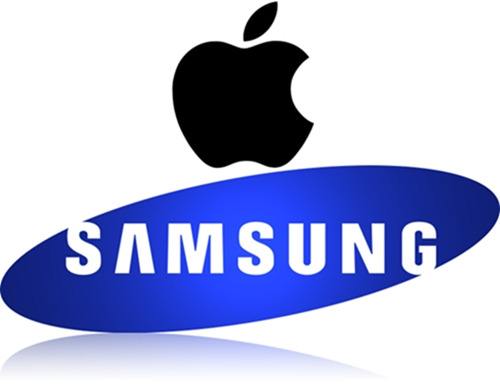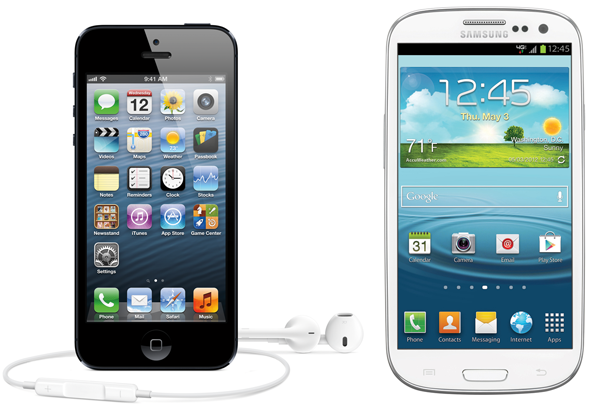
10 solid reasons RIM will make a comeback
By: Tim Collins On: 09 Oct 2012 For: ComputerWorld Canada
GUEST BLOG: We always hear the bad news first when it comes to RIM. So, let's look at the good news now
I’m the only diehard in my office who is still sporting a Blackberry. I’m holding out to see the Blackberry 10.
Going into 2011, everyone at my company used Blackberrys. We were huge fans. We BBM’d each other constantly. We even blogged about how much we loved our Blackberrys. Then RIM started to nosedive and one by one, my staff started showing up at the office with iPhones.


Bring the RIM magic back home
One of my IT recruiters posted a blog in November 2011 called The Blackberry Battle: Bring the Magic Back Home. She pitched nine ways RIM could make us proud of our Blackberrys again.
A year later, Michelle has replaced her Blackberry with an iPhone, while public support for the Blackberry has dipped so low that it’s absurd to even think that a marketing solution could spur a comeback.
In spite of its challenges, I still believe that RIM will make a comeback. It’s not just wishful thinking. With a solid cash flow, a growing user base and a dedicated army of developers, RIM is not another Nortel.
Wouldn’t it be incredible if the BB10 was as awesome as RIM says it’s going to be? Wouldn’t it be amazing if RIM did bring the magic back home and started hiring back the thousands of people they laid off?
If you are rooting for RIM to rise back to the top, bear with me while I tell you why this is all possible.
10 reasons RIM is poised for a comeback
10 reasons RIM is poised for a comeback
1) Developers believe in BB10. RIM has a knack for motivating some of the most brilliant minds on the planet. I personally know several developers who are still working for RIM and who are not the least bit interested in jumping ship. These insiders have job offers. But they are excited to be there for the release of BB10. Check out the Developers have 1000 Reasons to Believe in BB10 video from Blackberry Jam in San Jose.
2) Teenagers and messaging. It’s still the best messaging device bar none (this is why teenagers still carry Blackberrys--a pretty important demographic).
3) RIM has always had the best keyboard. My bet is that the genius engineers at RIM are going to have the best touchscreen keyboard on the market.
4) They smell the coffee.Thorsten Heins has woken up RIM from their dreams of past glory. Now they are facing reality and Heins promises big changes.
5) Licensing. The BB10 operating system is being licensed for other hardware like Microsoft Windows Phone 8.
6) Cash flow + growing existing user base. They still have $2 billion in cash and a user base of 80 million that grew by 2 million last quarter.
7) They dominate the high-security niche market. RIM is famous for the security of its smartphones. That’s one reason they dominated the corporate market before BYOD hit the fan. It’s still the go-to device for most governments around the world.
8) Leaked specs. According to leaked BB10 specs reported by the Droid Guy, “RIM would be releasing smartphones that would pose a threat to Samsung Galaxy S3, HTC One X and even iPhone 5. If the recent leaks were legit, RIM might be back with a vengeance. BlackBerry 10 A-Series may also be the Canadian company’s key to reclaiming its position in the market where it has dominated before.”
9) Incremental Improvements are boring. The last iPhone had only incremental improvements. The top two smartphones look more and more alike with every new release. If BB10 can offer us something new that we always wanted but never thought was possible, we’ll buy it.
10) The competition is distracted. Samsung and Apple are embroiled in legal battles that won’t end any time soon. Now Apple is going to battle with Google. This is going to be very distracting for them while their competitors RIM, Microsoft and Noikia come back to fight another day.
Comeback of the Century
I'll say it again. RIM is NOT another Nortel. I’m excited to watch RIM pull off the biggest comeback of the century. It happens. Just look at Ford’s recent recovery, against all odds.
Your Thoughts?
Your Thoughts?
- Do you think RIM will survive this downturn?
- If BB10 is well-received by media and consumers, could RIM find itself on the shopping lists of Microsoft, Facebook or Samsung?
- If BB10 is well-received by media and consumers, could RIM find itself on the shopping lists of Microsoft, Facebook or Samsung?
- Can BB10 become the Windows of smartphones operating systems?
Long story short...
I still have hope for RIM, but we need to be blown away by BB10.
My Personal thoughts on RIM. GF
My Personal thoughts on RIM. GF
Also, its better not too have every feature under the sun, just the ones that work really, really well and are simple to navigate, and to use. Yes there are sophisticated clients, but don't forget about all the guys who will buy your stuff on the street. Their word of mouth advertising is the best sales pitch ever. If they enjoy the product, then it will sell itself.
The way I saw it with earlier RIM products is that they cut too many corners on their hardware, not enough RAM, slow CPU's, low res screens. The software ended up sucking because once they added apps and multimedia, everything didn't work well. If RIM had made the proper hardware changes (evolving) instead of acting like Detroit, they wouldn't have lost the clientele they have, I'm pretty sure of that. So as far as a magic pill, there isn't one, but if I can pass on a few thoughts, this is it.
Don't make your phone like the Androids where they can do everything, but not everything well. Make sure its solid, with usable features, great (read popular) apps, and good, consistent performance. That includes your desktop software. Don't torment your customers with poorly thought out tools or software. If your grandma can use it without fail or complaint, your heading in the right direction. Frustration= bad sales. Just ask Microsoft.
And most of all don't make a brick of a phone. The iPhone 5 really broke through on that, although the screen is still too small to be fun, however their sales are worth paying attention too. And Apple just keeps whittling away at the formula, despite the detractors. People don't want fancy without the usability.
Good Luck




 Despite a slowly improving economy and a three-year-old stock market rebound, Americans today are more worried about their retirement finances than they were at the end of the Great Recession in 2009, according to a nationally representative survey of 2,508 adults conducted by the Pew Research Center.
Despite a slowly improving economy and a three-year-old stock market rebound, Americans today are more worried about their retirement finances than they were at the end of the Great Recession in 2009, according to a nationally representative survey of 2,508 adults conducted by the Pew Research Center. About four-in-ten adults (38%) say they are “not too” or “not at all” confident that they will have enough income and assets for their retirement,
About four-in-ten adults (38%) say they are “not too” or “not at all” confident that they will have enough income and assets for their retirement, In 2009 it was “Gloomy Boomers” in their mid-50s who were the most worried that they would outlive their retirement nest eggs. Today, retirement worries peak among adults in their late 30s—many of whom are the older sons and daughters of the Baby Boom generation. According to a Pew Research analysis of Federal Reserve Board data, this is also the age group that has suffered the steepest losses in household wealth in recent years.
In 2009 it was “Gloomy Boomers” in their mid-50s who were the most worried that they would outlive their retirement nest eggs. Today, retirement worries peak among adults in their late 30s—many of whom are the older sons and daughters of the Baby Boom generation. According to a Pew Research analysis of Federal Reserve Board data, this is also the age group that has suffered the steepest losses in household wealth in recent years. Expressed in dollars, the median wealth of those in the 35-to-44 age group in 2010 was $56,029 less than the median wealth that their same-aged counterparts had in 2000. In contrast, those ages 45 to 54 and 55 to 64 have lost about $50,000. With fewer assets to begin with, the median wealth of adults younger than 35 fell by a total of $5,270 between 2001 and 2010. The median wealth of those 65 and older increased slightly—making them the only age group whose net worth grew over what it had been for their same-aged counterparts a decade ago.
Expressed in dollars, the median wealth of those in the 35-to-44 age group in 2010 was $56,029 less than the median wealth that their same-aged counterparts had in 2000. In contrast, those ages 45 to 54 and 55 to 64 have lost about $50,000. With fewer assets to begin with, the median wealth of adults younger than 35 fell by a total of $5,270 between 2001 and 2010. The median wealth of those 65 and older increased slightly—making them the only age group whose net worth grew over what it had been for their same-aged counterparts a decade ago. The Demographics of Retirement Anxiety
The Demographics of Retirement Anxiety In contrast, confidence fell the most (19 percentage points, to 51%) among those earning $30,000 to $49,999 and by 14 points in families with incomes of $75,000 to $99,999. At the same time, the proportion of those making $50,000 to $74,999 who are confident about their retirement nest eggs declined by 11 points.
In contrast, confidence fell the most (19 percentage points, to 51%) among those earning $30,000 to $49,999 and by 14 points in families with incomes of $75,000 to $99,999. At the same time, the proportion of those making $50,000 to $74,999 who are confident about their retirement nest eggs declined by 11 points. A Pew Research survey conducted in September 2011 produced results that closely mirrored those in the latest poll. In that survey, 51% of respondents ages 35 to 44 were concerned about retirement finances, compared with 41% of 45- to 54-year-olds and 37% of those ages 55 to 64.
A Pew Research survey conducted in September 2011 produced results that closely mirrored those in the latest poll. In that survey, 51% of respondents ages 35 to 44 were concerned about retirement finances, compared with 41% of 45- to 54-year-olds and 37% of those ages 55 to 64. The graph on the preceding page tracks the rise and fall of retirement worries from ages 18 to 75 in the 2011-2012 surveys. The second trend line plots retirement concerns over the age range from the 2009 Pew survey.
The graph on the preceding page tracks the rise and fall of retirement worries from ages 18 to 75 in the 2011-2012 surveys. The second trend line plots retirement concerns over the age range from the 2009 Pew survey. A very different pattern emerges when the moving average is plotted using 2009 data. Retirement concerns peak among those ages 51 to 55; among this group, about four-in-ten (42%) lack confidence that they have enough money for retirement.
A very different pattern emerges when the moving average is plotted using 2009 data. Retirement concerns peak among those ages 51 to 55; among this group, about four-in-ten (42%) lack confidence that they have enough money for retirement. In the past 10 years, median wealth of households headed by adults 35 to 44 years old has dropped from $99,727 in 2001 to $43,698 in 2010, a 56% decline.
In the past 10 years, median wealth of households headed by adults 35 to 44 years old has dropped from $99,727 in 2001 to $43,698 in 2010, a 56% decline.